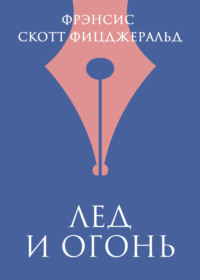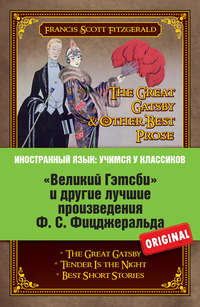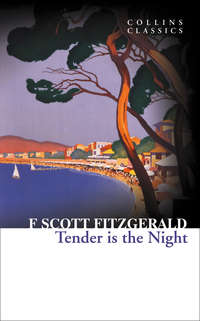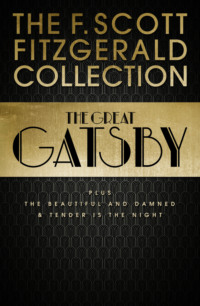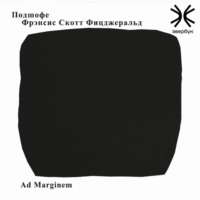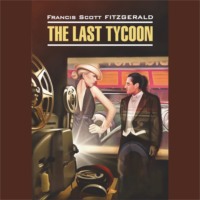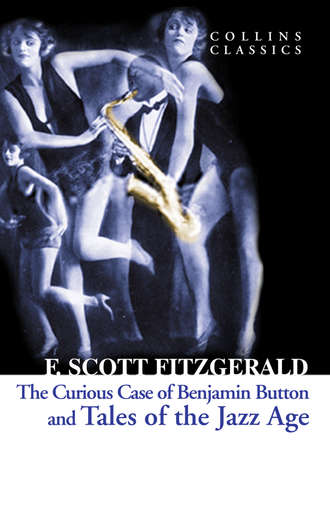
Полная версия
Tales of the Jazz Age
“No; move sideways.”
The camel’s hips went neatly out of joint; a hula dancer would have writhed in envy.
“Good, isn’t it?” demanded Perry, turning to Mrs. Nolak for approval.
“It looks lovely,” agreed Mrs. Nolak.
“We’ll take it,” said Perry.
The bundle was stowed under Perry’s arm and they left the shop.
“Go to the party!” he commanded as he took his seat in the back.
“What party?”
“Fanzy-dress party.”
“Where’bouts is it?”
This presented a new problem. Perry tried to remember, but the names of all those who had given parties during the holidays danced confusedly before his eyes. He could ask Mrs. Nolak, but on looking out the window he saw that the shop was dark. Mrs. Nolak had already faded out, a little black smudge far down the snowy street.
“Drive uptown,” directed Perry with fine confidence. “If you see a party, stop. Otherwise I’ll tell you when we get there.”
He fell into a hazy daydream and his thoughts wandered again to Betty—he imagined vaguely that they had had a disagreement because she refused to go to the party as the back part of the camel. He was just slipping off into a chilly doze when he was wakened by the taxi-driver opening the door and shaking him by the arm.
“Here we are, maybe.”
Perry looked out sleepily. A striped awning led from the curb up to a spreading gray stone house, from which issued the low drummy whine of expensive jazz. He recognized the Howard Tate house.
“Sure,” he said emphatically; “’at’s it! Tate’s party to-night. Sure, everybody’s goin’.”
“Say,” said the individual anxiously after another look at the awning, “you sure these people ain’t gonna romp on me for comin’ here?”
Perry drew himself up with dignity.
“’F anybody says anything to you, just tell ’em you’re part of my costume.”
The visualization of himself as a thing rather than a person seemed to reassure the individual.
“All right,” he said reluctantly.
Perry stepped out under the shelter of the awning and began unrolling the camel.
“Let’s go,” he commanded.
Several minutes later a melancholy, hungry-looking camel, emitting clouds of smoke from his mouth and from the tip of his noble hump, might have been seen crossing the threshold of the Howard Tate residence, passing a startled footman without so much as a snort, and heading directly for the main stairs that led up to the ballroom. The beast walked with a peculiar gait which varied between an uncertain lockstep and a stampede—but can best be described by the word “halting.” The camel had a halting gait—and as he walked he alternately elongated and contracted like a gigantic concertina.
III
The Howard Tates are, as every one who lives in Toledo knows, the most formidable people in town. Mrs. Howard Tate was a Chicago Todd before she became a Toledo Tate, and the family generally affect that conscious simplicity which has begun to be the earmark of American aristocracy. The Tates have reached the stage where they talk about pigs and farms and look at you icy-eyed if you are not amused. They have begun to prefer retainers rather than friends as dinner guests, spend a lot of money in a quiet way, and, having lost all sense of competition, are in process of growing quite dull.
The dance this evening was for little Millicent Tate, and though all ages were represented, the dancers were mostly from school and college—the younger married crowd was at the Townsends’ circus ball up at the Tallyho Club. Mrs. Tate was standing just inside the ballroom, following Millicent round with her eyes, and beaming whenever she caught her eye. Beside her were two middle-aged sycophants, who were saying what a perfectly exquisite child Millicent was. It was at this moment that Mrs. Tate was grasped firmly by the skirt and her youngest daughter, Emily, aged eleven, hurled herself with an “Oof!” into her mother’s arms.
“Why, Emily, what’s the trouble?”
“Mamma,” said Emily, wild-eyed but voluble, “there’s something out on the stairs.”
“What?”
“There’s a thing out on the stairs, mamma. I think it’s a big dog, mamma, but it doesn’t look like a dog.”
“What do you mean, Emily?”
The sycophants waved their heads sympathetically.
“Mamma, it looks like a—like a camel.”
Mrs. Tate laughed.
“You saw a mean old shadow, dear, that’s all.”
“No, I didn’t. No, it was some kind of thing, mamma—big. I was going down-stairs to see if there were any more people, and this dog or something, he was coming up-stairs. Kinda funny, mamma, like he was lame. And then he saw me and gave a sort of growl, and then he slipped at the top of the landing, and I ran.”
Mrs. Tate’s laugh faded.
“The child must have seen something,” she said.
The sycophants agreed that the child must have seen something—and suddenly all three women took an instinctive step away from the door as the sounds of muffled steps were audible just outside.
And then three startled gasps rang out as a dark brown form rounded the corner, and they saw what was apparently a huge beast looking down at them hungrily.
“Oof!” cried Mrs. Tate.
“O-o-oh!” cried the ladies in a chorus.
The camel suddenly humped his back, and the gasps turned to shrieks.
“Oh—look!”
“What is it?”
The dancing stopped, but the dancers hurrying over got quite a different impression of the invader; in fact, the young people immediately suspected that it was a stunt, a hired entertainer come to amuse the party. The boys in long trousers looked at it rather disdainfully, and sauntered over with their hands in their pockets, feeling that their intelligence was being insulted. But the girls uttered little shouts of glee.
“It’s a camel!”
“Well, if he isn’t the funniest!”
The camel stood there uncertainly, swaying slightly from side to side, and seeming to take in the room in a careful, appraising glance; then as if he had come to an abrupt decision, he turned and ambled swiftly out the door.
Mr. Howard Tate had just come out of the library on the lower floor, and was standing chatting with a young man in the hall. Suddenly they heard the noise of shouting up-stairs, and almost immediately a succession of bumping sounds, followed by the precipitous appearance at the foot of the stairway of a large brown beast that seemed to be going somewhere in a great hurry.
“Now what the devil!” said Mr. Tate, starting.
The beast picked itself up not without dignity and, affecting an air of extreme nonchalance, as if he had just remembered an important engagement, started at a mixed gait toward the front door. In fact, his front legs began casually to run.
“See here now,” said Mr. Tate sternly. “Here! Grab it, Butterfield! Grab it!”
The young man enveloped the rear of the camel in a pair of compelling arms, and, realizing that further locomotion was impossible, the front end submitted to capture and stood resignedly in a state of some agitation. By this time a flood of young people was pouring down-stairs, and Mr. Tate, suspecting everything from an ingenious burglar to an escaped lunatic, gave crisp directions to the young man:
“Hold him! Lead him in here; we’ll soon see.”
The camel consented to be led into the library, and Mr. Tate, after locking the door, took a revolver from a table drawer and instructed the young man to take the thing’s head off. Then he gasped and returned the revolver to its hiding-place.
“Well, Perry Parkhurst!” he exclaimed in amazement.
“Got the wrong party, Mr. Tate,” said Perry sheepishly. “Hope I didn’t scare you.”
“Well—you gave us a thrill, Perry.” Realization dawned on him. “You’re bound for the Townsends’ circus ball.”
“That’s the general idea.”
“Let me introduce Mr. Butterfield, Mr. Parkhurst.” Then turning to Perry; “Butterfield is staying with us for a few days.”
“I got a little mixed up,” mumbled Perry. “I’m very sorry.”
“Perfectly all right; most natural mistake in the world. I’ve got a clown rig and I’m going down there myself after a while.” He turned to Butterfield. “Better change your mind and come down with us.”
The young man demurred. He was going to bed.
“Have a drink, Perry?” suggested Mr. Tate.
“Thanks, I will.”
“And, say,” continued Tate quickly, “I’d forgotten all about your—friend here.” He indicated the rear part of the camel. “I didn’t mean to seem discourteous. Is it any one I know? Bring him out.”
“It’s not a friend,” explained Perry hurriedly. “I just rented him.”
“Does he drink?”
“Do you?” demanded Perry, twisting himself tortuously round.
There was a faint sound of assent.
“Sure he does!” said Mr. Tate heartily. “A really efficient camel ought to be able to drink enough so it’d last him three days.”
“Tell you,” said Perry anxiously, “he isn’t exactly dressed up enough to come out. If you give me the bottle I can hand it back to him and he can take his inside.”
From under the cloth was audible the enthusiastic smacking sound inspired by this suggestion. When a butler had appeared with bottles, glasses, and siphon one of the bottles was handed back; thereafter the silent partner could be heard imbibing long potations at frequent intervals.
Thus passed a benign hour. At ten o’clock Mr. Tate decided that they’d better be starting. He donned his clown’s costume; Perry replaced the camel’s head, arid side by side they traversed on foot the single block between the Tate house and the Tallyho Club.
The circus ball was in full swing. A great tent fly had been put up inside the ballroom and round the walls had been built rows of booths representing the various attractions of a circus side show, but these were now vacated and over the floor swarmed a shouting, laughing medley of youth and color—downs, bearded ladies, acrobats, bareback riders, ringmasters, tattooed men, and charioteers. The Townsends had determined to assure their party of success, so a great quantity of liquor had been surreptitiously brought over from their house and was now flowing freely. A green ribbon ran along the wall completely round the ballroom, with pointing arrows alongside and signs which instructed the uninitiated to “Follow the green line!” The green line led down to the bar, where waited pure punch and wicked punch and plain dark-green bottles.
On the wall above the bar was another arrow, red and very wavy, and under it the slogan: “Now follow this!”
But even amid the luxury of costume and high spirits represented, there, the entrance of the camel created something of a stir, and Perry was immediately surrounded by a curious, laughing crowd attempting to penetrate the identity of this beast that stood by the wide doorway eying the dancers with his hungry, melancholy gaze.
And then Perry saw Betty standing in front of a booth, talking to a comic policeman. She was dressed in the costume of an Egyptian snake-charmer: her tawny hair was braided and drawn through brass rings, the effect crowned with a glittering Oriental tiara. Her fair face was stained to a warm olive glow and on her arms and the half moon of her back writhed painted serpents with single eyes of venomous green. Her feet were in sandals and her skirt was slit to the knees, so that when she walked one caught a glimpse of other slim serpents painted just above her bare ankles. Wound about her neck was a glittering cobra. Altogether a charming costume—one that caused the more nervous among the older women to shrink away from her when she passed, and the more troublesome ones to make great talk about “shouldn’t be allowed” and “perfectly disgraceful.”
But Perry, peering through the uncertain eyes of the camel, saw only her face, radiant, animated, and glowing with excitement, and her arms and shoulders, whose mobile, expressive gestures made her always the outstanding figure in any group. He was fascinated and his fascination exercised a sobering effect on him. With a growing clarity the events of the day came back—rage rose within him, and with a half-formed intention of taking her away from the crowd he started toward her—or rather he elongated slightly, for he had neglected to issue the preparatory command necessary to locomotion.
But at this point fickle Kismet, who for a day had played with him bitterly and sardonically, decided to reward him in full for the amusement he had afforded her. Kismet turned the tawny eyes of the snake-charmer to the camel. Kismet led her to lean toward the man beside her and say, “Who’s that? That camel?”
“Darned if I know.”
But a little man named Warburton, who knew it all, found it necessary to hazard an opinion:
“It came in with Mr. Tate. I think part of it’s probably Warren Butterfield, the architect from New York, who’s visiting the Tates.”
Something stirred in Betty Medill—that age-old interest of the provincial girl in the visiting man.
“Oh,” she said casually after a slight pause.
At the end of the next dance Betty and her partner finished up within a few feet of the camel. With the informal audacity that was the key-note of the evening she reached out and gently rubbed the camel’s nose.
“Hello, old camel.”
The camel stirred uneasily.
“You ‘fraid of me?” said Betty, lifting her eyebrows in reproof. “Don’t be. You see I’m a snake-charmer, but I’m pretty good at camels too.”
The camel bowed very low and some one made the obvious remark about beauty and the beast.
Mrs. Townsend approached the group.
“Well, Mr. Butterfield,” she said helpfully, “I wouldn’t have recognised you.”
Perry bowed again and smiled gleefully behind his mask.
“And who is this with you?” she inquired.
“Oh,” said Perry, his voice muffled by the thick cloth and quite unrecognizable, “he isn’t a fellow, Mrs. Townsend. He’s just part of my costume.”
Mrs. Townsend laughed and moved away. Perry turned again to Betty,
“So,” he thought, “this is how much she cares! On the very day of our final rupture she starts a flirtation with another man—an absolute stranger.”
On an impulse he gave her a soft nudge with his shoulder and waved his head suggestively toward the hall, making it clear that he desired her to leave her partner and accompany him.
“By-by, Rus,” she called to her partner. “This old camel’s got me. Where we going, Prince of Beasts?”
The noble animal made no rejoinder, but stalked gravely along in the direction of a secluded nook on the side stairs.
There she seated herself, and the camel, after some seconds of confusion which included gruff orders and sounds of a heated dispute going on in his interior, placed himself beside her—his hind legs stretching out uncomfortably across two steps.
“Well, old egg,” said Betty cheerfully, “how do you like our happy party?”
The old egg indicated that he liked it by rolling his head ecstatically and executing a gleeful kick with his hoofs.
“This is the first time that I ever had a tête-à-tête with a man’s valet ’round”—she pointed to the hind legs—“or whatever that is.”
“Oh,” mumbled Perry, “he’s deaf and blind.”
“I should think you’d feel rather handicapped—you can’t very well toddle, even if you want to.”
The camel hang his head lugubriously.
“I wish you’d say something,” continued Betty sweetly. “Say you like me, camel. Say you think I’m beautiful. Say you’d like to belong to a pretty snake-charmer.”
The camel would.
“Will you dance with me, camel?”
The camel would try.
Betty devoted half an hour to the camel. She devoted at least half an hour to all visiting men. It was usually sufficient. When she approached a new man the current débutantes were accustomed to scatter right and left like a close column deploying before a machine-gun. And so to Perry Parkhurst was awarded the unique privilege of seeing his love as others saw her. He was flirted with violently!
IV
This paradise of frail foundation was broken into by the sounds of a general ingress to the ballroom; the cotillion was beginning. Betty and the camel joined the crowd, her brown hand resting lightly on his shoulder, defiantly symbolizing her complete adoption of him.
When they entered the couples were already seating themselves at tables round the walls, and Mrs. Townsend, resplendent as a super bareback rider with rather too rotund calves, was standing in the centre with the ringmaster in charge of arrangements. At a signal to the band every one rose and began to dance.
“Isn’t it just slick!” sighed Betty. “Do you think you can possibly dance?”
Perry nodded enthusiastically. He felt suddenly exuberant. After all, he was here incognito talking to his love—he could wink patronizingly at the world.
So Perry danced the cotillion. I say danced, but that is stretching the word far beyond the wildest dreams of the jazziest terpsichorean. He suffered his partner to put her hands on his helpless shoulders and pull him here and there over the floor while he hung his huge head docilely over her shoulder and made futile dummy motions with his feet. His hind legs danced in a manner all their own, chiefly by hopping first on one foot and then on the other. Never being sure whether dancing was going on or not, the hind legs played safe by going through a series of steps whenever the music started playing. So the spectacle was frequently presented of the front part of the camel standing at ease and the rear keeping up a constant energetic motion calculated to rouse a sympathetic perspiration in any soft-hearted observer.
He was frequently favored. He danced first with a tall lady covered with straw who announced jovially that she was a bale of hay and coyly begged him not to eat her.
“I’d like to; you’re so sweet,” said the camel gallantly.
Each time the ringmaster shouted his call of “Men up!” he lumbered ferociously for Betty with the cardboard wienerwurst or the photograph of the bearded lady or whatever the favor chanced to be. Sometimes he reached her first, but usually his rushes were unsuccessful and resulted in intense interior arguments.
“For Heaven’s sake,” Perry would snarl, fiercely between his clenched teeth, “get a little pep! I could have gotten her that time if you’d picked your feet up.”
“Well, gimme a little warnin’!”
“I did, darn you.”
“I can’t see a dog-gone thing in here.”
“All you have to do is follow me. It’s just like dragging a load of sand round to walk with you.”
“Maybe you wanta try back hare.”
“You shut up! If these people found you in this room they’d give you the worst beating you ever had. They’d take your taxi license away from you!”
Perry surprised himself by the ease with which he made this monstrous threat, but it seemed to have a soporific influence on his companion, for he gave out an “aw gwan” and subsided into abashed silence.
The ringmaster mounted to the top of the piano and waved his hand for silence.
“Prizes!” he cried. “Gather round!”
“Yea! Prizes!”
Self-consciously the circle swayed forward. The rather pretty girl who had mustered the nerve to come as a bearded lady trembled with excitement, thinking to be rewarded for an evening’s hideousness. The man who had spent the afternoon having tattoo marks painted on him skulked on the edge of the crowd, blushing furiously when any one told him he was sure to get it.
“Lady and gent performers of this circus,” announced the ringmaster jovially, “I am sure we will all agree that a good time has been had by all. We will now bestow honor where honor is due by bestowing the prizes. Mrs. Townsend has asked me to bestow the prices. Now, fellow performers, the first prize is for that lady who has displayed this evening the most striking, becoming”—at this point the bearded lady sighed resignedly—“and original costume.” Here the bale of hay pricked up her ears. “Now I am sure that the decision which has been agreed upon will be unanimous with all here present. The first prize goes to Miss Betty Medill, the charming Egyptian snake-charmer.” There was a burst of applause, chiefly masculine, and Miss Betty Medill, blushing beautifully through her olive paint, was passed up to receive her award. With a tender glance the ringmaster handed down to her a huge bouquet of orchids.
“And now,” he continued, looking round him, “the other prize is for that man who has the most amusing and original costume. This prize goes without dispute to a guest in our midst, a gentleman who is visiting here but whose stay we all hope will be long and merry—in short, to the noble camel who has entertained us all by his hungry look and his brilliant dancing throughout the evening.”
He ceased and there was a violent clapping, and yeaing, for it was a popular choice. The prize, a large box of cigars, was put aside for the camel, as he was anatomically unable to accept it in person.
“And now,” continued the ringmaster, “we will wind up the cotillion with the marriage of Mirth to Folly!
“Form for the grand wedding march, the beautiful snake-charmer and the noble camel in front!”
Betty skipped forward cheerily and wound an olive arm round the camel’s neck. Behind them formed the procession of little boys, little girls, country jakes, fat ladies, thin men, sword-swallowers, wild men of Borneo, and armless wonders, many of them well in their cups, all of them excited and happy and dazzled by the flow of light and color round them, and by the familiar faces, strangely unfamiliar under bizarre wigs and barbaric paint. The voluptuous chords of the wedding march done in blasphemous syncopation issued in a delirious blend from the trombones and saxophones—and the march began.
“Aren’t you glad, camel?” demanded Betty sweetly as they stepped off. “Aren’t you glad we’re going to be married and you’re going to belong to the nice snake-charmer ever afterward?”
The camel’s front legs pranced, expressing excessive joy.
“Minister! Minister! Where’s the minister?” cried voices out of the revel. “Who’s going to be the clergyman?”
The head of Jumbo, obese negro, waiter at the Tally-ho Club for many years, appeared rashly through a half-opened pantry door.
“Oh, Jumbo!”
“Get old Jumbo. He’s the fella!”
“Come on, Jumbo. How ‘bout marrying us a couple?”
“Yea!”
Jumbo was seized by four comedians, stripped of his apron, and escorted to a raised daïs at the head of the ball. There his collar was removed and replaced back side forward with ecclesiastical effect. The parade separated into two lines, leaving an aisle for the bride and groom.
“Lawdy, man,” roared Jumbo, “Ah got ole Bible ‘n’ ev’ythin’, sho nuff.”
He produced a battered Bible from an interior pocket.
“Yea! Jumbo’s got a Bible!”
“Razor, too, I’ll bet!”
Together the snake-charmer and the camel ascended the cheering aisle and stopped in front of Jumbo.
“Where’s yo license, camel?”
A man near by prodded Perry.
“Give him a piece of paper. Anything’ll do.”
Perry fumbled confusedly in his pocket, found a folded paper, and pushed it out through the camel’s mouth. Holding it upside down Jumbo pretended to scan it earnestly.
“Dis yeah’s a special camel’s license,” he said. “Get you ring ready, camel.”
Inside the camel Perry turned round and addressed his worse half.
“Gimme a ring, for Heaven’s sake!”
“I ain’t got none,” protested a weary voice.
“You have. I saw it.”
“I ain’t goin’ to take it offen my hand.”
“If you don’t I’ll kill you.”
There was a gasp and Perry felt a huge affair of rhinestone and brass inserted into his hand.
Again he was nudged from the outside.
“Speak up!”
“I do!” cried Perry quickly.
He heard Betty’s responses given in a debonair tone, and even in this burlesque the sound thrilled him.
Then he had pushed the rhinestone through a tear in the camel’s coat and was slipping it on her finger, muttering ancient and historic words after Jumbo. He didn’t want any one to know about this ever. His one idea was to slip away without having to disclose his identity, for Mr. Tate had so far kept his secret well. A dignified young man, Perry—and this might injure his infant law practice.



